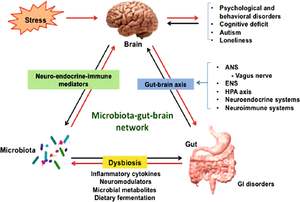Remedying Neurological Disorders: How to Treat Complex Brain Conditions
treatment for neurological disorder can be a daunting prospect. Neurological disorders manifest in many different forms and require specialized approaches that depend on the individual condition and its symptoms. In this article we will explore some of the most common treatments used to manage neurological disorders.
Identifying the Problem
Because neurological disorders come in many shapes and sizes, it’s important to accurately identify any issues as quickly as possible so treatment may begin. Typical signs of a neurological disorder may include difficulty speaking or understanding language, dizziness, seizures, impaired coordination, or weakness. Testing may involve EEGs, blood work, or CT scans which allow medical professionals to gain a better understanding of what is happening in the brain. Identifying a neurological disorder is the first step towards managing it.
Medication
Depending on the particular disorder, medication may be prescribed to control the physical and mental effects. Some medications are designed to control epileptic seizures or reduce anxiety, while others target movement and coordination. For example, someone with Parkinson’s disease may be prescribed pharmaceuticals to increase dopamine levels and help keep the body stable. Medications are not able to cure neurological disorders, but they can often improve symptoms.
Physical and Occupational Therapy
Physical and occupational therapy approaches can build strength and coordination, restoring function and mobility. Physical therapists focus on improving posture, balance, endurance, and coordination, while occupational therapists look to improve the ability to perform everyday tasks. In many cases, these therapies can be combined to achieve the best results.
Nutritional Factors
Good nutrition is essential for long-term health. Eating a balanced diet can aid in proper brain function, mood regulation, and memory retention. In addition to basic nutrition, dietary supplements targeted to neurological disorders may provide essential nutrition needed to support brain health and lessen the effects of disorders.
Complementary Therapies
Complementary therapies such as yoga, martial arts, and aromatherapy are gaining traction for their ability to improve relaxation and reduce stress. They can also improve balance and coordination, as well as reduce inflammation. With regular practice, complementary therapies can often help lessen the impact of neurological disorders over time.
Support Groups
Living with a neurological disorder can be isolating, so it’s important to have a supportive community to rely on. Support groups allow those affected by similar conditions to connect and share experiences, providing emotional support and advice. The strength and wisdom of the group members can be invaluable outlets for those struggling with neurological disorders.
Ultimately, treatment for neurological disorder varies greatly depending on the individual condition. Finding the right combination of strategies can be a long and complex process, but it is well worth the effort for both patient and caregiver. With the right approach, it is possible to effectively manage most neurological disorders and live a meaningful life.
Treatments for neurological disorders can vary depending on the individual condition, but many therapies focus on improving the quality of a patient’s life. Common treatments involve medications, physical or occupational therapy, speech therapy, and psychological counseling. Medications can be used to control symptoms related to the disorder such as seizures and tremors. Physical and occupational therapy can be used to help improve coordination, balance, and muscle strength. Speech therapy can be used to develop communication skills. Psychological counseling can help a patient manage stress and improve his or her ability to cope with the disorder. Although treatments may not always lead to complete remission of the disorder, they can usually improve the quality of life and reduce symptoms.


